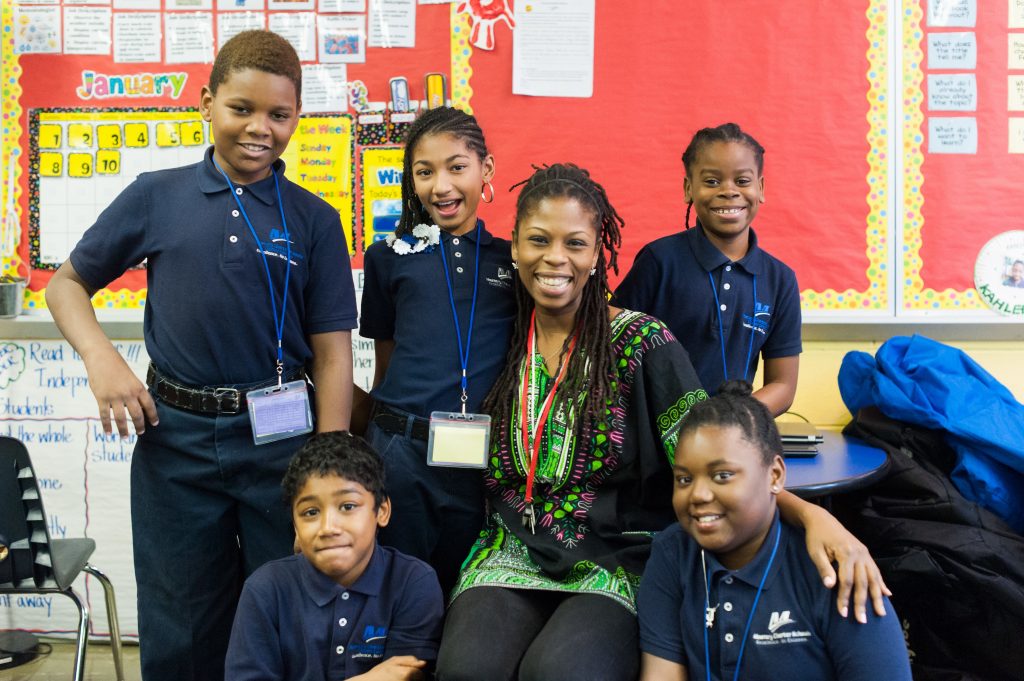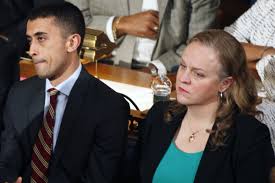
New Credo Study on Camden Proves That “You Can Provide More High Quality Choices for Families” and Improve Outcomes for “Students Who Have Been Most Underserved.”
June 28, 2019
Paymon Rouhanifard and Cami Anderson Discuss the “Staggering Lack of Efficiency and Accountability” In the Schools Development Authority. Your Taxes at Work, Folks.
July 9, 2019Newark Students Deserve Education Champions Who Keep Their Promises
This is a guest post by Tommy Luna who is currently entering his 10th year as an eighth grade math teacher at Newark’s Rise Academy. He is also co-chair for the grass-roots group Newark for Educational Equity and Diversity (NEED). This first appeared at Education Post.
It’s no secret that education in the city of Newark has had a tumultuous history. It’s a history with a complex narrative—going from a distinguished district to a state takeover, and now, thanks to recent reform efforts, back to local control for the first time in 20 years.
Some in Newark believe that now is not that time for local control. I say, as both a nine-year classroom veteran and community organizer for Newark for Educational Equity and Diversity (NEED), bring it on. Newark is ready to control its future and education hasn’t looked this good here in a very long time.
My evidence for such a claim boils down to two simple and coequal metrics to assess the health and vitality of any organization: product (results) and process (methods).
In Newark, we are getting results. In a recent study released by New Jersey Children’s Foundation (NJCF) and MarGrady Research, a number of data points show that Newark kids are being enrolled in schools, both district and charter, that are placing them in academic achievement levels above the state average on New Jersey’s state test (PARCC). We’ve also seen a continual increase in our graduation rates, rising enrollment numbers in both district and charter schools, and an increase in access to schools that are beating the odds. Today, Black students in Newark are four times likelier to attend an above-average school than they were 12 years ago.
As to the “how” of these gains (process), the NJCF report does “not argue that any single reform caused the gains documented here. We simply argue that the gains happened, they are real, and they are meaningful.” But where research has fallen short, involved Newarkers know the truth: collaboration is everything.
In my work as a NEED organizer, I firmly believe that Newark’s culture of collaboration is the cause of student success. Contrary to the popular narrative, Newark’s educational landscape is not a warzone of district schools vs. charter schools—it’s a collection of well-meaning individuals working to improve our city.
Now let me be clear, in no way should “collaboration” invoke images of hand-holding and singing Kumbaya. People disagree. Emotions run high. The work is hard. And you know what? It should be. Newark kids deserve champions who are willing to spend the time and energy to keep educational promises sacred. Fortunately, Newark has dozens of champions who already roll up their sleeves to get the job done.
Productive education advocates and activists are forming coalitions to address educational issues—meaning their issues are broader, smarter and better researched. Because of these coalitions, we’ve seen a rise in collaboration between district and charter schools in the areas of professional development and best practices. We also have a home-grown superintendent, Roger Leon, who is addressing district needs by collaboratively going after root causes of educational harms (e.g. attendance, real-time graduation status, access to textbooks, etc.). As collaboration increases in our city, so do results.
So when I say bring on the full era of local control, it’s because I know our city is ready to ensure our kids succeed. They are succeeding now and, as adults get even better at collaborating in Newark, their levels of success will only get higher.
While our educational history isn’t the most pristine, we are poised to write a new chapter with a simple lesson: Newark became better because more and more people worked together. That is the history we will write. That is the history our kids deserve.




